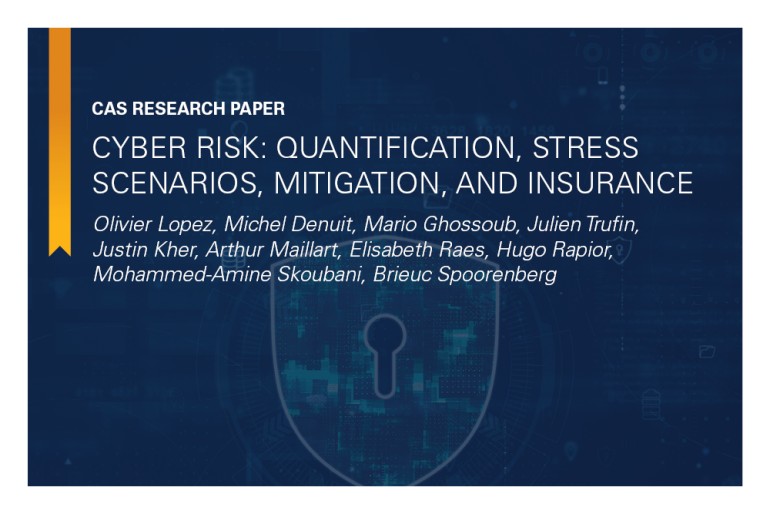New Research Offers Breakthrough in Cyber Risk Quantification for Insurance Industry

A newly released CAS Research Paper tackles one of the most pressing challenges in the evolving cyber insurance landscape: how to reliably quantify cyber risk. In “Cyber Risk: Quantification, Stress Scenarios, Mitigation, and Insurance,” authors Olivier Lopez, Michel Denuit, Mario Ghossoub, et al., introduce a forward-looking methodology for building a synthetic database of cyber events, designed to serve as a benchmark for insurers and risk analysts.
The proposed database supports improved risk transfer strategies and enhances risk management procedures, providing a practical foundation for both strategic planning and operational testing. Importantly, the synthetic nature of the database allows researchers and industry stakeholders to simulate and assess the potential impacts of different cyber prevention schemes, enabling evidence-based decision-making.
In a further innovation, the paper explores stress-testing insurance portfolios, offering a detailed framework for calibrating stress scenarios. These scenarios are vital in understanding points at which mutualization—the cornerstone of insurance—could fail, especially in the face of large-scale, correlated cyber events.
All methodologies presented are designed for rapid adaptation and update, ensuring they remain relevant as new data and insights emerge in the ever-changing cyber risk landscape.
The CAS Research Council commissioned this work, which represents a significant step toward more resilient and data-informed cyber insurance practices.
